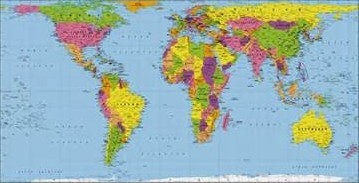A Revolution of Values
QUOFLECTIONS™
ON SPIRITUALITY AND ETHICS
“Our scientific power has
outrun our spiritual power.
We have guided missiles
and misguided men.”
Dr. Martin Luther King
Reinventing a dead hero is easier than learning from his controversial teachings. So we may praise King’s civil-rights leadership. He was right about our national prejudices.
What we may find objectionable, however, is King’s declaration, “War is not the answer.” We want peace, yet we may believe war is necessary to achieve it. King disagrees. Could he be right about warfare as well?
Precisely one year before his assassination, King delivers a memorable address. In his April 4, 1967 speech, A Time to Break Silence, he links “the giant triplets of racism, materialism and militarism.” Unless we value people more than profits and property, he declares, these false values cannot be conquered.
This speech transcends history, calling our nation to “a revolution of values” that transforms our thinking about today’s world. Indeed, the underlying values leading our nation into Vietnam and Iraq are disturbingly similar.
King’s first reason for opposing the Vietnam War is the evisceration of President Johnson’s anti-poverty program. His oratory is devastating: “A nation that continues year after year to spend more money on military defense than on programs of social uplift is approaching spiritual death.”
Blacks die for liberties in southeast Asia, King says, that they are denied in southwest Georgia. Given the class disparities of soldiers, King adds, “I could not be silent in the face of such cruel manipulation of the poor.”
Perhaps the seminal reason for King’s opposition is his commitment to nonviolence. He recites the disturbing details of the cruelties our government inflicts on the Vietnamese: “So far we may have killed a million of them—mostly children.” He also grieves for children begging for food and soliciting soldiers for sex with their sister or mother.
King concludes that, in addition to protesting, a revolution of values is essential. Otherwise, our nation will continue these disastrous policies, and protesters will be “attending rallies without end.” This radical revolution rejects Western assumptions of superiority, acknowledging we must learn from other cultures; transforms our self-centered materialism into empathy for those who suffer; and refuses to pursue peace and justice through war and violence.
Implementing the motto of the Southern Christian Leadership Conference, King seeks “to save the soul of America.” His call to urgent action is accompanied by a warning: “If we do not act we shall surely be dragged down the long, dark and shameful corridors of time reserved for those who possess power without compassion, might without morality, and strength without sight.”
King is right about Vietnam. If our government listens, two-thirds of the casualties on both sides are spared. What might he say to our nation today?
King would surely preach that our nation’s budget bloats the wallets of the wealthy while starving the impoverished of life’s necessities. Our disproportionate military recruitment of minorities and the poor would again trouble him. He would likely contend that, in the decimation of Fallujah, a city of 250,000, the macabre madness of Ben Tre applies: “We had to destroy the village to save it.”
While our government praises democracy, King would notice that, like Vietnam, our manipulation of the media in Iraq undermines democracy. The executive branch also assaults the New York Times, whether it publishes the Pentagon Papers or government deceptions about the Iraqi war. Likewise, King would decry the Administration’s resumption of domestic spying, abrogating freedom at home, while our government’s secret prisons and torture negates human rights abroad.
Dr. King would assuredly lament our failure to learn from the folly of Vietnam or the extraordinary achievements of the civil rights movement. Vietnam teaches that violence begets violence and leads to suffering on an unimaginable scale. The movement teaches that peacemakers who accept suffering produce an enduring peace through peaceful means.
Lest America continue spiraling downward toward spiritual death, let us heed King’s call to hope by “declaring eternal hostility to poverty, racism and militarism.” Perhaps a revolution of values is still possible.
©2006 Harry Rix. All rights reserved.
Related Articles
Prophetic Love’s Power
The Values of a Galactic Education
A Prophet’s Treason
What is Our Greatest Moral Challenge?
Glimpsing the Creator

